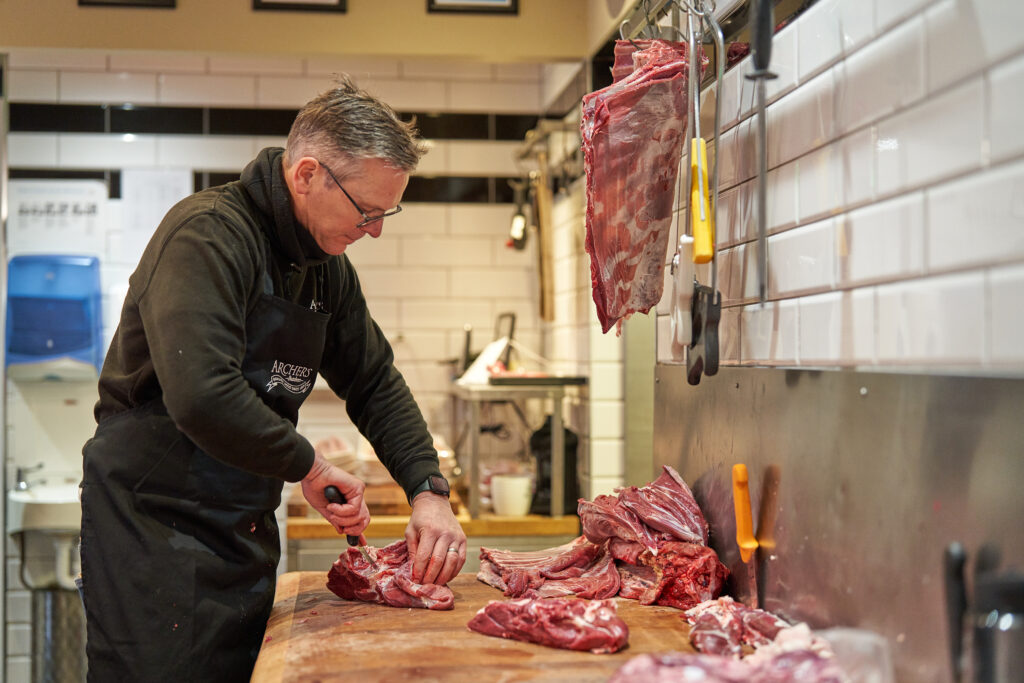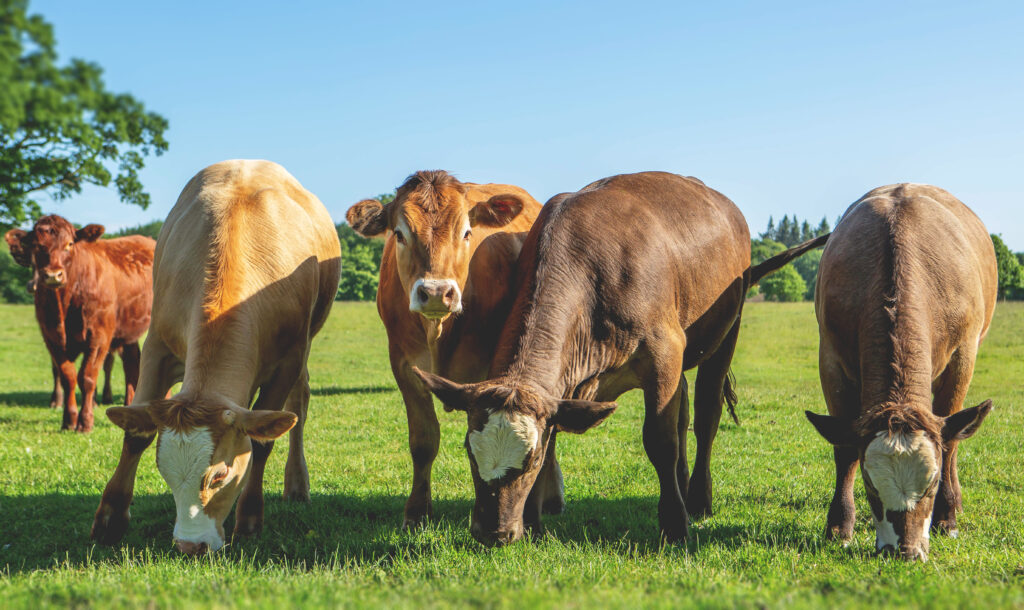Meat MythBusters: Setting the Record Straight on Meat Consumption
In the ongoing conversation about what we eat and where it comes from, ethical meat consumption often finds itself at the heart of many discussions, wrapped in myths and misunderstandings.
Getting to the bottom of these myths is the key, particularly for those who prioritise high-welfare, responsibly sourced meat. Let’s dive in and debunk five widespread myths about meat.
At Archer’s Butchery, we know the importance of making choices that are both informed and ethical, when it comes to diet.
Our provenance, husbandry and heritage are huge factors that impact where we source our meats and you can find out much more about our suppliers, by visiting our dedicated Provenance page
Myth 1: All Meat Production is Bad for the Environment
The impact of meat production on the environment isn’t one-size-fits-all. Although industrial farming practices have their negatives, there’s another side to the story
The Truth: With sustainable, high-welfare farming. Techniques like rotational grazing can actually benefit biodiversity, improve the health of the soil, and help reduce the emission of greenhouse gases. Choosing to support high-welfare farms is a vote for a food system that respects our planet. For a deeper understanding of how sustainable agricultural practices can support biodiversity and soil health, enhancing the sustainability of our food systems, explore Agriculture and soil biodiversity | IUCN.
Myth 2: Meat is Universally Harmful to Your Health
The Truth: Saying all meat is bad for your health overlooks the complex details of nutrition. While it’s true that processed meats might not be the healthiest choice, meat that comes from ethically raised animals is packed with vital nutrients, including protein, vitamins like B12 and D3, and minerals such as iron and zinc. The true impact of meat on our health significantly hinges on how and where it is produced. For a deeper dive into which meats can actually bolster your health and fitness goals, consider exploring our insights on the top 5 healthy meats for 2024.
Myth 3: Ethically Raised Meat is Too Expensive

The Truth: The notion that ethical meat is out of reach for most budgets doesn’t paint the whole picture. The price tag on ethical meat more accurately reflects the genuine costs of farming that puts the welfare of animals and the health of the environment first. Even those watching their spending can find ways to include ethical meat in their meals, by choosing more affordable cuts or buying in larger quantities. It’s all about prioritising quality and ethics, and making smart choices that align with your budget.
Myth 4: There’s No Real Difference Between Ethical and Conventional Meat
The Truth: There’s a clear distinction between meat from ethically raised animals and that from conventional farming, and it’s not just about the ethical considerations. Ethically sourced meat often comes from animals that have lived more natural, stress-free lives, with access to the outdoors and a diet that’s closer to what they’d naturally eat. This approach doesn’t just benefit the animals’ welfare; it can also influence the nutritional value and taste of the meat. Opting for ethical meat means supporting farming practices that honour animal welfare and potentially offer a healthier choice of meat.

Myth 5: Ethically Raised Meat Doesn’t Taste any Different
The Truth: The way animals are raised has a significant effect on the taste and quality of meat. Animals that enjoy high-quality diets and humane living conditions are likely to yield meat that’s more flavorful and has a better texture. Many chefs and food lovers back up the superior taste of ethically raised meat, with blind taste tests frequently confirming this preference.
Conclusion: The Importance of Ethical Meat Consumption
Busting these myths about meat is crucial for anyone wanting to make ethical, well-informed decisions. High-welfare, ethically sourced meat stands out not just for supporting animal welfare and environmental sustainability, but also for promoting healthier eating habits. By demystifying common misconceptions, we all have the opportunity to contribute to a more ethical and sustainable food system, beginning with our own choices. Embracing ethical meat consumption is a powerful step toward nourishing our bodies, safeguarding the planet, and ensuring animal welfare, influencing wider change over time.


